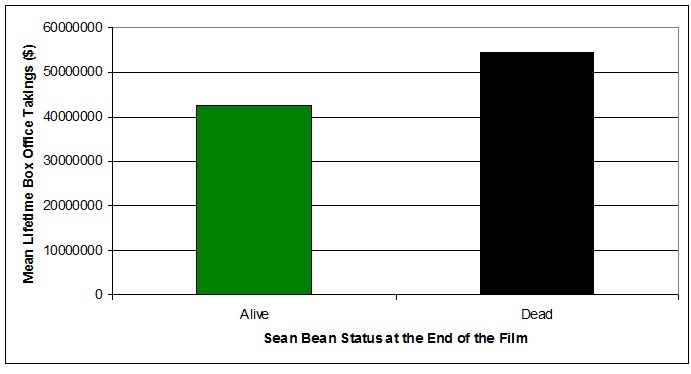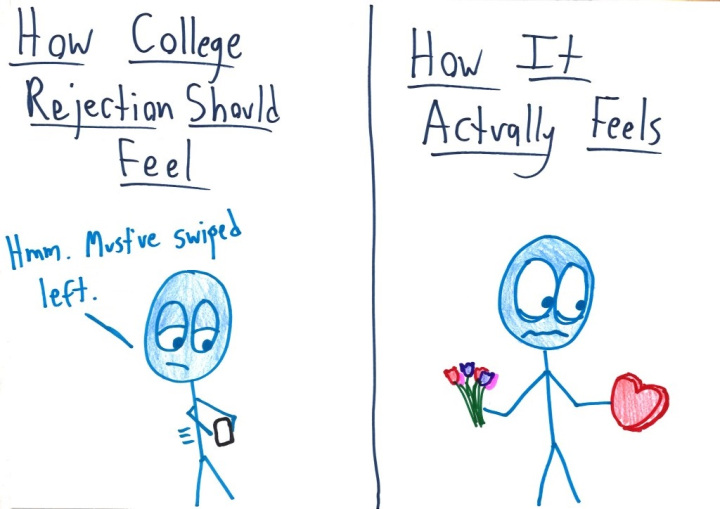What makes a great blog post? We all have our pet criteria: sharp prose. Enlightening content. Stunning photos. (“Lots of GIFs?” Sure, why not?) Beyond its style or tone, a standout post invites us to take a peek into another person’s home or field of expertise, and offers a glimpse of that individual’s mind at work.
The five recent posts featured here touched a nerve with readers, and have the buzzing comment sections and social media shares to show for it. Read them and you’ll see why: smart, well written, and engaging, you might feel the urge to jump into the conversation yourself.
Does Sean Bean Always Die at the End?
If you’ve been on the internet in the past five years and/or are a Game of Thrones fan (that’s roughly 103% of those reading this right now), you likely know that actor Sean Bean’s characters always die violent, gruesome deaths.

Chart by Dave Steele.
But do they? Science writer and comedian Dave Steele took this piece of conventional wisdom, soaked it in a rich marinade of stats, pie charts, and humor, and ended up with an insightful reflection on the way our perception works, especially when it comes to popular culture.
In Which I Learn Why There Are No Great Women Composers
Back in September, British magazine The Spectator published a polemical article about the supposed dearth of great women composers. Musician-blogger Emily E. Hogstead would have none of it.
Luckily the “goodness” of music is a totally scientific and quantifiable thing that allows no room for personal preference, bias, or interpretation.
— Emily E. Hogstead, Song of the Lark
She responded with a sharp, witty, point-by-point takedown of the original article’s claims, while also educating her readers about — surprise! — some great women composers (and their struggles to be recognized).
Why I’ve Stopped Doing Interviews for Yale
It’s college application season in North America, when millions of high school students polish their essays, list (and/or embellish) their extracurricular activities, and anxiously await an invitation to an interview with alumni/ae of their top choices.

Illustration by Ben Orlin.
Teacher and math lover Ben Orlin won’t be among them, having decided no longer to conduct interviews for his alma mater, Yale. Orlin bemoans the randomness and excessive emotional toll of the admissions process, and uses his trademark stick figures to make an important point about the American fixation on getting into the right school.
Being Fiction, Instead of Writing It
Michelle, blogging at The Green Study, charts the arc of her writing life, giving us an honest and uncompromising account of her achievements — as well as her struggles and failures.
I’m putting a spin on my forties, when I decided I’d become a martial artist, super mom, Japanese ink painter, personal trainer, officer of the law, marathoner, web genius, everywhere volunteer and organic vegan superfreak. It was all research for writing. It sounds so much better than a midlife panic.
It’s time to ante up or fold. I’ve run off in a thousand different directions and always, always, I come back to writing. And the only opposition to me seriously pursuing it, is me.
— Michelle, The Green Study
This post perfectly channels the angst and self-flagellation that often follows writers in their careers regardless of their success. But it ends with a renewed commitment to the act of writing, however frustrating and humbling it might be.
Seeing the Sorrow Anew: Recapturing the Reality of Suffering Through Srebrenica
Matt LaRoche, writing at the The Gettysburg Compiler, a student-led history blog, asks an ever-important question: how can we preserve the lessons learned through the horrors of past wars once the last survivors pass away?
The hundreds of thousands of unknowns of the Civil War were just as raw to the loved ones they left behind as the one thousand-plus unknowns of Srebrenica are to this day.
— Matt LaRoche, The Gettysburg Compiler
He goes on to argue that it’s through listening to those who had to endure more recent atrocities — like victims of ethnic cleansing in Bosnia in the 1990s — that we can capture some of the lived experience of war, in the hope that we avoid perpetuating it.
Thirsty for more great reading? Try Discover, our showcase of editors’ picks and recommended sites, or visit Longreads for the best longform stories from around the web.

